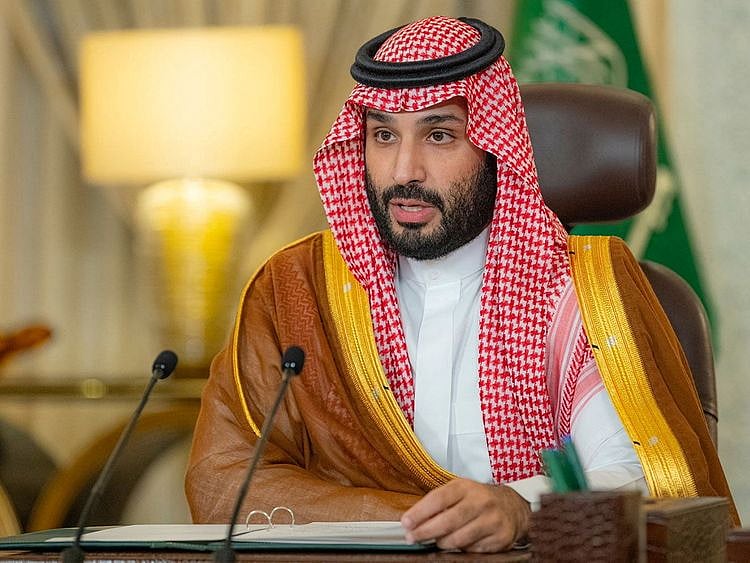The Saudi Vision 2030 plan that was introduced in 2016 by the Saudi Crown Prince Mohamed Bin Salman (MBS) is already marching halfway through toward the finish line.
It is an ambitious initiative that seeks to reduce the Kingdom’s dependence on oil, diversify its economy, and develop public service sectors such as health, education, infrastructure, recreation, and tourism. NEOM is a key benchmark of this plan, which is being developed as a new economic and investment hub in the northwest region of Saudi Arabia.
The plan also includes initiatives to ensure that the private sector plays a more prominent role in the economy, create more job opportunities for Saudi citizens, raise living standards, and reduce government bureaucracy and corruption.
Journey of success
MBS has set several key benchmarks towards achieving these goals, such as increasing the percentage of non-oil exports as a share of total exports from 16% to 50% by 2030 and increasing the share of non-oil government revenues from 17% to 50%.
Additionally, the government has committed to cutting unemployment from 12.9% to 7% by 2030 and increasing female participation in the labour force from 22.5% to 30%.
In the seven years since its birth, Vision 2030 has built the foundations for continuing economic and social growth, setting the Kingdom on a journey of success.
As the halfway point to 2030 approaches, the Vision will continue to gain momentum, unlocking opportunities across a wealth of sectors and communities, in support of a better tomorrow for Saudi Arabia and its people.
Core tenets of Vision 2030
One of the core tenets of Vision 2030 was social responsibility through its youth, which underpins the Kingdom’s vision of a thriving, inclusive, and supportive society.
The country is on a mission to empower its citizens to become positive and independent contributors to the nation, with a shared responsibility for its ongoing prosperity and well-being, and that of future generations.
Those efforts are already bearing fruit. Saudi Arabia ranked first in the Arab world in the 2021 World Happiness Report, produced by the UN’s Sustainable Development Solutions Network, and 21st globally.
The annual report, which scores countries globally on the health and happiness of their populations, is widely seen as a barometer for prosperity and a key snapshot of the nation.
NEOM, part of the Vision and a challenging prospect that is already in the works will be a global hub for energy and water, biotech, media and entertainment, advanced manufacturing and technology, as well as food production.
NEOM will also focus on investing in renewable energy sources, creating the world’s largest renewable energy hub by 2032. NEOM’s development will include building an independent economic zone to attract talent and investments from around the world.
All of these objectives are expected to create thousands of jobs for the Kingdom’s citizens and bring vital foreign investments into its economy.
Great public feedback
So how does this vision play in the hearts of Saudis? Leila, 27, a financial analyst, says: “My grandmother dreamt, and so did my mother. But for me, Vision 2030 turned their dreams into a reality. What they were forbidden from doing, today I am taking full opportunity available to all my peers in marching towards excelling myself and contributing to this nation. Today I can drive myself to work among men and women in a professional and respectful atmosphere without any issues of harassment, thanks to Vision 2030.”
Hussein, an oil industry analyst, adds: “It is essential that the plan be continuously monitored for key performance indicators and corrective action be taken whenever the need arises. It is encouraging to note that since the plan was announced seven years ago, our foreign direct investment has increased by more than 200%, our borders have welcomed millions more than ever before and our economy had sustained the brutal onslaught of the Covid years without much significant impact. There still remains more work to be done, but all signs point to the objectives being met when 2030 rolls around.”
Salma, a local florist tells me: “Look around. I still have a few red roses left from Valentine’s Day. I have sold thousands this year. Remember when shops would be stormed by a frenzied mobs on such occassions? Well, Vision 2030 took care of that by ensuring that such things do not happen anymore. And we women are particularly grateful as we were the most marginalised back in the day.”
Yes indeed, Vision 2030 is beginning to shape the future of Saudi Arabia and its people in a positive and meaningful way and will herald a new era of prosperity for Saudi Arabia. All hands on board!
— Tariq A. Al Maeena is a Saudi sociopolitical commentator. He lives in Jeddah, Saudi Arabia. Twitter: @talmaeena
Sign up for the Daily Briefing
Get the latest news and updates straight to your inbox
Network Links
GN StoreDownload our app
© Al Nisr Publishing LLC 2026. All rights reserved.
